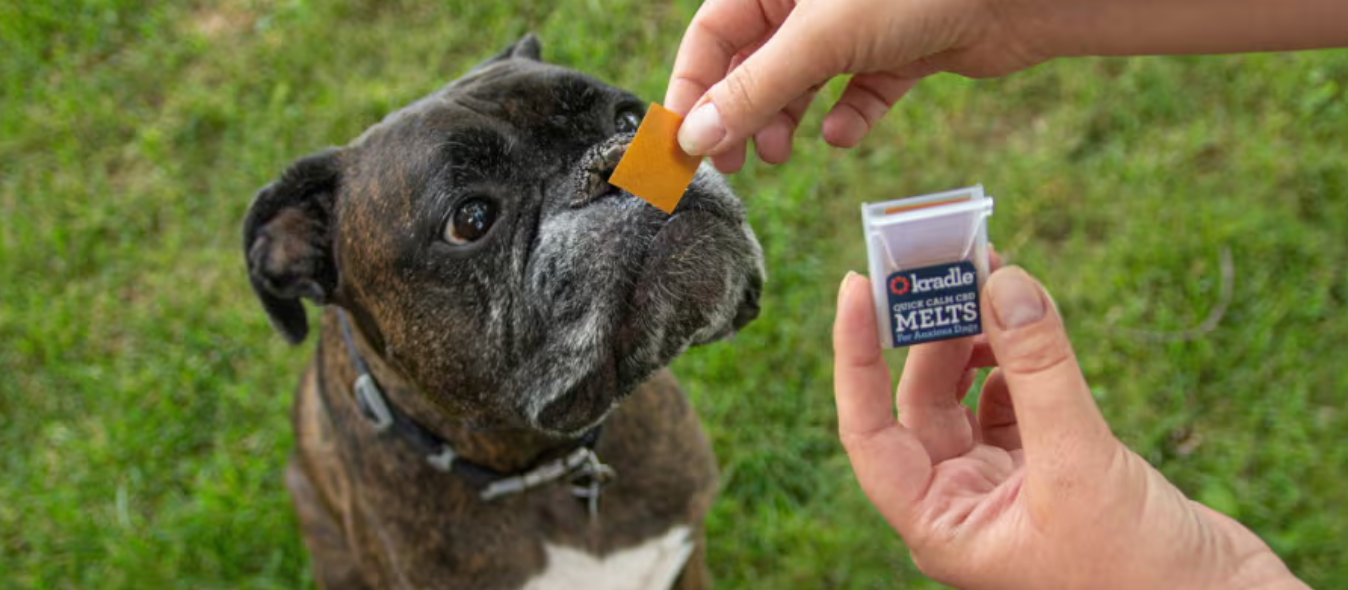Can Dogs Eat Peppers?
Bell peppers are a staple ingredient in the US, commonly found in stir-fries, salads, soups, and veggie platters. Sweet, juicy, and crisp, peppers are a delicious snack, a healthy ingredient, and offer a bright burst of natural color. If you love snacking on peppers and have been tempted to offer your pup a bite, you might have wondered: can dogs eat peppers?
Are Peppers Safe for Dogs?
Yes! Bell Peppers are non-toxic to dogs, and if you’ve got a dog that loves a crunchy snack, they’ll probably really enjoy munching down on a sweet bell pepper.
However, you should never feed your dog a spicy pepper. While they are also non-toxic, spicy peppers (sometimes called chilis or chili peppers) contain capsaicin, the chemical that is responsible for the heat in hot peppers. While it is not a toxic compound, it can cause severe discomfort and pain for your pet.
If your dog does eat a spicy pepper, don’t panic. They are not explicitly toxic to dogs, but your dog may experience stomach irritation, bowel pain, diarrhea, and vomiting. If your dog seems especially distressed, contact your vet to ask how you can relieve their discomfort.
Common Types of Pepper
Let’s take a more in-depth look at which peppers are safe for dogs, and which peppers aren’t. Here’s a quick rundown of the common types of pepper you’ll find at your local grocery store or farmer’s market.
*Note: we have included a ‘spice level’ category which is measured in Scoville heat units (SHU). Anything above zero has the potential to give your dog gastrointestinal pain and discomfort.
|
Pepper Type |
Common Uses |
Spice Level |
Safe for Dogs? |
|
|
Stews, sauces, salsas |
500 - 1,000 SHU |
No. |
|
|
Condiment |
500 SHU |
No. |
|
|
Stir-fried, snacking raw, in soups & salads |
0 SHU |
Yes! |
|
|
Thai, Vietnamese, & Malaysian cuisine |
50,000 - 100,000 SHU |
NO! |
|
|
Novelty, super spicy pepper |
1,400,000 - 2,200,000 SHU |
NEVER. Contact a vet. |
|
|
Dry, powdered as a seasoning |
30,000 - 50,000 SHU |
No. |
|
|
Salsa, sauces, ceviche |
2,500 - 10,000 SHU |
No. |
|
|
Novelty, super spicy pepper |
1,000,000+ SHU |
NEVER. Contact a vet. |
|
|
Salsas, hot sauce |
150,000 - 575,000 SHU |
NO! |
|
|
South and Central American cuisine, Southeast Asian cuisine, Central Asian cuisine, pickled |
2,000 - 8,000 SHU |
No. |
|
|
Condiment |
100 - 500 SHU |
No. |
|
|
Condiment, in olives |
500 - 1,000 SHU |
No. |
|
|
Mexican cuisine |
1,000 - 1,500 SHU |
No. |
|
|
Jamaican cuisine |
100,000 - 350,000 SHU |
NO! |
|
|
Mexican & Vietnamese cuisine |
10,000 - 25,000 SHU |
No. |
|
|
Eaten grilled or fried |
100 - 1,000 SHU |
No. |
Nutritional Value of Peppers
Bell peppers are super high in vitamin C, but because your dog should not be eating more than a few bits of bell pepper every now and then, they won’t benefit from these nutrients. Instead, the value of giving the occasional bell pepper to your dog is the low-calorie content. Full of hydrating water and super low in calories, bell peppers are a healthy treat option for dogs that like to crunch!
How To Safely Feed Peppers to Dogs
The safest way to feed your dog bell pepper is to core it, remove the stem and seeds, and cut it into small, bite-sized pieces.
Some dogs may find raw peppers a little hard to digest, so you can also lightly cook them by putting them in the oven to roast or adding them to a dry frying pan for a few minutes. However, it’s important not to add oil or seasoning, since your dog should not be eating foods that contain salt or processed oils.
It’s important to also never feed your dog peppers from a dish that contains toxic ingredients. Some common ingredients used with bell peppers that cannot be eaten by dogs include:
- Garlic
- Onion
- Added salt and MSG
- Avocado
- Citrus
Stick to small amounts of raw bell pepper (with stem and seeds removed), and lightly cooked, unseasoned, un-oiled bell pepper.
Can Dogs Eat Peppers? The FAQ
If you didn’t find the answer to your pepper question above, you’re sure to find it here! These are the most common questions dog owners have about whether dogs can eat peppers.
Can Dogs Eat Peppers Raw?
Yes, dogs can eat raw bell peppers, as long as they have had their stems and seeds removed to prevent choking or dental damage.
Dogs should not eat raw chilis or spicy peppers, which can cause severe pain and discomfort.
Can Dogs Eat Bell Peppers?
Yes! Bell peppers are the only peppers that are dog-approved because they contain zero capsaicin, the compound responsible for giving spicy peppers their heat. Capsaicin is not strictly toxic to dogs, but it can cause extreme gastrointestinal discomfort and distress for the animal.
Can Dogs Eat Red and Yellow Peppers?
Yes, if they are bell peppers. Other varieties of red and yellow peppers (like cayenne and banana peppers) contain high levels of capsaicin and are not safe for dogs to eat.
Are Green Peppers Safe For Dogs?
Yes, if they are bell peppers. Other varieties of green peppers (like jalapeños and serrano peppers) are too spicy to safely feed your dog.

Fun fact! Bell peppers change color and get sweeter as they ripen; they start green (the least sweet), then turn yellow, then orange, and finally red (the sweetest).
Can Dogs Eat Bell Peppers Cooked?
Yes, as long as you don’t add any oil or seasoning!
If your dog is sensitive to new treats or has had trouble digesting vegetables in the past, try lightly cooking your bell peppers before feeding them to your dog. Cooking helps to break down some of the fiber in the bell peppers, making them more digestible for your pup.
Because you should not feed your dog seasoned cooked bell peppers, don’t share food from your plate.
Can Dogs Eat Spicy Peppers?
No! However, if your dog gets ahold of a piece of mildly spicy pepper like pimento or pepperoncini they will likely be fine and may show no signs of discomfort.
Eating spicier peppers will likely result in painful stomach ache, vomiting, diarrhea, and distress. Seeing your dog uncomfortable can be very upsetting, and it can be hard to know when something is seriously wrong, or when your dog is just having an upset stomach due to the spicy peppers.
Because of this, we suggest giving your vet a call if your dog has eaten spicy peppers and is showing signs of discomfort. Your veterinarian will be able to give you recommendations to keep your pup comfortable as the spice wears off, or tell you what to do in case the situation is dire.





 Anaheim Chili
Anaheim Chili Banana Pepper
Banana Pepper Bell Pepper
Bell Pepper Bird’s Eye Chili
Bird’s Eye Chili Carolina Reaper
Carolina Reaper Cayenne Pepper
Cayenne Pepper Fresno Chili
Fresno Chili Ghost Pepper
Ghost Pepper Habanero Pepper
Habanero Pepper Jalapeño Pepper
Jalapeño Pepper Pepperoncini
Pepperoncini Pimento/Cherry Pepper
Pimento/Cherry Pepper Poblano Pepper
Poblano Pepper Scotch Bonnet
Scotch Bonnet Serrano Pepper
Serrano Pepper Shishito Peppers
Shishito Peppers


